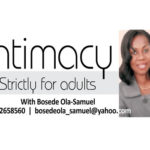Can you tell us a little about yourself?
I’m a lawyer but I dumped my wig, gown and certificate to pursue a career in comedy. I’m still laughing. I am popularly known as Mc Lively and fondly called Barrister Mike- a character I play in my skits. I was called to the Nigerian Bar in 2016 after graduating from the Obafemi Awolowo University, OAU, Ile- Ife, Osun State. But as I said, I chose to make people laugh and that seems to be paying off gradually, if not, you wouldn’t be reading this.
Tell us what we don’t know about you more than being MC Lively?
My comic characters are mainly inspired by my mother.
You are now a sensational comedian in the country, how have you achieved this cadre amidst the competition in the industry over the years?
My team and I work tirelessly to ensure that our content is organic and valuable. And that is what sets the Lively brand apart.
Your skits started as a satire, divulging issues surrounding the life of graduates without employment and the job searching routine they pass through, was this out of your passion for a steady employment or just skits?
It is actually a bit of both. I have always been vocal about addressing issues, especially societal issues, but I also understand that communication is not effective if nobody is listening.
Hence, my team and I took the responsibility of creating content that says the same things we would have said to a jury at a courthouse in a form that is relatable and humorous. And that tool is one of the things that set my brand apart.
MC Lively is becoming a brand, but you still address yourself as Barrister Mike in your recent videos, is this to remind the public you are a lawyer?
Addressing me as Barrister Mike is not an intent to remind people that I am a lawyer, Barrister Mike is a character that is a reflection of Mc Lively. Of course, Mc Lively is a Barrister who is jobless, and that’s all there is to it. But who knows? I could tap into other expressions of Mc Lively soon.
Would you drop comedy for the court in a second life?
My decision to pursue a career in comedy was not an afterthought or an escape plan from a failing career in Law. It was in fact, my first choice. So, I would definitely choose comedy in my second life and the life after that because that is the core of my life.
How is the comedy industry significant to the Nigerian economy?
Comedy shows are selling; comedians are making money, where do you think all that money gets pumped back into? Also, we use our craft to address societal issues and those also have a great impact on the economy of a country. The real question is, is the economy taking advantage of the comedy industry?
How has your experience been generally?
I must say I am grateful to all my fans for supporting me. The journey has been such an interesting one. There are days when you’re pumped and there are days you’re not.
With the hate speech bill going on, don’t you think comedians are even at higher risks of being charged for being sometimes extreme in jokes relating to political office holders or those in power?
Let me first establish that comedians are already being targeted, the hate speech act just further intensifies the damage. Besides, the hate speech bill is set to further deprive people of their fundamental human rights. Hence, it should have no place in the Nigerian economy or any economy at all.
With the voice of comedy, can there be a better nation?
Yes, definitely. With comedy, there can be a better society. Take a look at other countries around the world and the impact the comedy industry has had on family, culture and lifestyle.
What’s your survival mechanism?
It’s actually quite tough surviving, especially in Lagos. But I guess the way I thrive is by keeping high-spirited friends around me. I have loads of high-spirited friends. I live to laugh and make people laugh, so I surround myself with friends who make me laugh and who I can make laugh.
So, when are you getting married?
I’m married already, to my craft.






